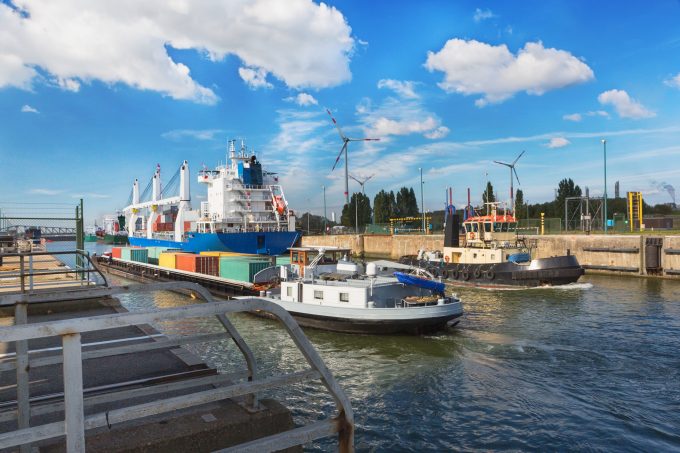Hauliers add surcharge for collections from congested London Gateway
Container haulage firms serving London Gateway in the UK have begun to introduce a £150 ...

The port of Antwerp has formed a committee to tackle the severe barge congestion hampering major European container gateways.
The move came as port chief executive Jacques Vandermeiren warned that greater capacity was required to meet surging demand.
Antwerp’s head of intermodality & hinterland, Pascale Pasmans, said the port ...

Comment on this article
Gunther Ginckels
July 19, 2017 at 2:52 pmA good initiative and long due. CEO Jacques Vandermeiren is a hands-on leader and while only 6 months in seat he makes the right decisions. Will it be easy – absolutely not! Already since 2014 a study made by SEASC4U ( http://www.seasc4u.com ) revealed the challenges for inland navigation in the ports of Antwerp and Rotterdam and offered possible solutions ( http://www.seasc4u.com/wp-content/uploads/2017/07/Study-Concept-Barge-ARA_2014_V-1.3.pdf ). Fragmentation in the Barge owners sector with over 7000 barges where 70% of the barge companies own less than 3 ships, Inland Barge Terminal owners / operators acting as brokers owning few barges of their own, operators focusing on load patterns with no regard to the problems the discharge sequence creates at Ocean terminals and the lack of sufficient barge handling capacity in the ports are few of the problems hindering the development of inland navigation in the ARA – Rhine-Ruhr area blessed with the best inland waterways network in the world. Lack of labour is a re-occurring issue in the summer period which Unions and Labour Pool CEPA seems unable to handle year after year. In the committee, we see again the manifest absence of the barge owners. The Contargo’s, Danser’s, Nedcargo’s etc… continue to load barges at their inland terminal serving up to 4 to 5 ocean port terminals with average less than 15 containers to be handled and are thus part of the problem. The Ocean Terminals lack the courage of claiming the real fixed cost of handling a barge regardless the number of moves. Cargo owners ignore the problems as many have a direct carrier’s haulage contract with the shipping lines. The Container carriers pay the congestion surcharges and add the cost to their already stressed profitability. The recent Triple-E class ULCV’s with 20,000 TEU capacity dumping up to 5,000 TEU in a 24 hrs window have not contributed to resolving these challenges.